
Juggling work-life balance
Maintaining work-life balance can be HARD but with careful planning it
CAN BE DONE!
Tips to make weekends away possible
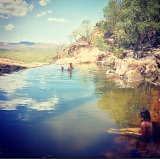
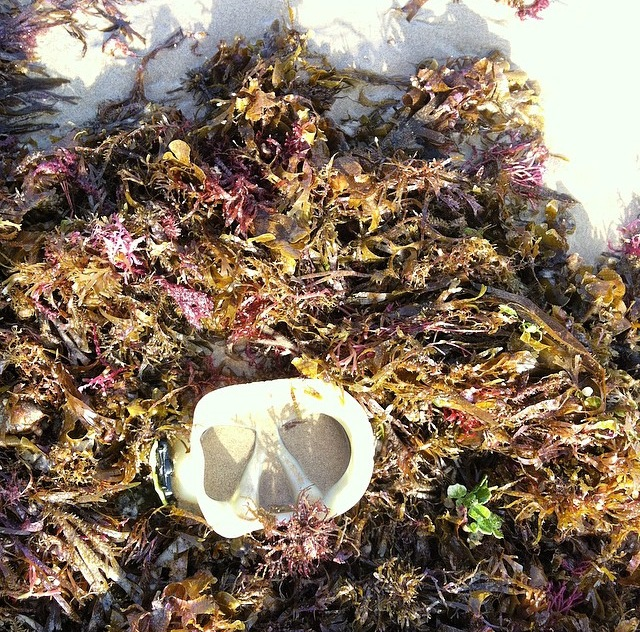
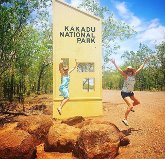

Maintaining work-life balance can be HARD but with careful planning it
CAN BE DONE!




Spring is the season of growth and transformation. We come out of the hibernation of Winter and move forward with bursting flowers, warmer weather and longer days of sunlight. There is a sense of renewal and new life all around.
While Winter was a time to conserve energy and reduce activity, spring is a time of regeneration, new beginnings, and a renewal of spirit.
Spring is the ideal time for cleansing and rejuvenation for overall health and well-being, as well as corresponding to the “Wood” element, which in turn is conceptually related to the liver and gallbladder organs. According to the philosophy of Chinese medicine, the liver is responsible for the smooth flow of energy movement throughout the body. When the liver functions smoothly, physical and emotional activity throughout the body also runs smoothly. We even feel like doing more exercise and being outside!
Imbalances that can occur during Spring:
Feeling frustrated, irritable, anger outbursts
Insomnia, restless sleep
Temporal headaches, migraines
Depression
Abdominal discomfort
Alternating bowel motions
Lack of motivation
A feeling like there is a lump in the throat
Premenstrual symptoms
Irregular, painful periods
Bitter taste in the mouth
Stiff joints
Dry mouth and throat
Ringing in the ears
Sore red eyes, blurry vision
Seasonal acupuncture treatments a minimum four times a year can serve to regulate the inner organ systems and can correct minor annoyances before they become health problems. Acupuncture can help improve the overall health of your liver as well as treat stress, anger and frustration, which are often associated with liver disharmony.
Stretch – The liver controls the tendons. According to Chinese medicine, the liver stores blood during periods of rest and then releases it to the tendons in times of activity, maintaining tendon health and flexibility. Incorporate a morning stretch into your routine. Try a local yoga class!
Eye Exercises – The liver opens into the eyes. Although all the organs have some connection to the health of the eyes, the liver is connected to proper eye function. Remember to take breaks when looking at a computer monitor for extended periods of time and do eye exercises.
Eat Greens – Green is the colour of the liver and of spring time. Eating young plants – fresh, leafy greens, sprouts, and immature cereal grasses – can improve the liver’s overall function.
Taste Sour – Foods and drinks with sour tastes are thought to stimulate the liver’s movement. Put lemon slices in your drinking water, use vinegar and olive oil for your salad dressing. Garnish your sandwich with a slice of dill pickle.
Do more outdoor activities – Outside air helps energy to flow. If you have been feeling irritable or stuck, find an outdoor activity to smooth out that liver stagnation. Try bush walking or take up swimming.
Enjoy milk thistle tea
Milk thistle helps protect liver cells from incoming toxins and encourages the liver to cleanse itself of damaging substances, such as alcohol, medications, pesticides, environmental toxins, and even heavy metals such as mercury.
Take care of you, see you in the clinic,
TK xx
Tanya Keam Wellness is an experienced health clinic on the Sunshine Coast. Helping you to feel better in all aspects of your health and wellbeing.
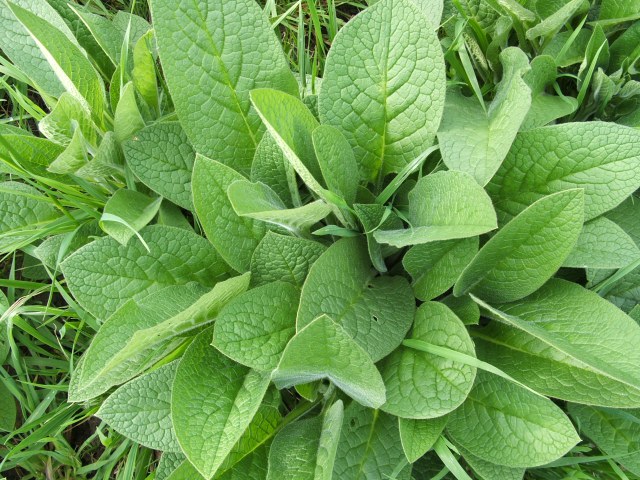
Comfrey has been used for thousands of years both internally and topically for a number of ailments. Comfrey was historically used to treat a wide variety of ailments ranging from bronchial problems, broken bones, sprains, arthritis, gastric and varicose ulcers, severe burns, acne and other skin conditions. It was reputed to have bone and teeth building properties in children, and have value in treating many female disorders.
Comfrey, like other herbs/plants/pharmaceuticals have properties that can become toxic to the liver if ingested internally at very unrealistic high doses. Hence, as a practitioner, I prefer to use this plant topically in creams and ointments post acupuncture treatments for muscle strains, bruises, rehabilitation of injuries and bone repair, such as joint injury, post-operative care.
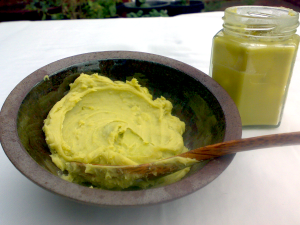
Externally, it is said to be anti-inflammatory due to its natural concentration of allantoin (a natural chemical compound – a natural soothing, anti-irritant, and skin protectant that increases the water content of the extracellular matrix which provides structural support to cells and is an important part of connective tissue).
It is high in Calcium and Vitamin C and in folk medicine it is sometimes referred to as “knitbone” for its ability to speed wound healing.
Not recommended for use in pregnant women, even externally.
Take care of you, see you in the clinic,
TK xx
Tanya Keam Wellness is an experienced health clinic on the Sunshine Coast. Helping you to feel better in all aspects of your health and wellbeing.

According to Traditional Chinese Medicine, the body cycles through twelve 2 hour cycles every day and night, during which each organ system becomes most active. So that for each particular organ system it has a high tide, such as 7-9am – Stomach time – why breakfast is so important !
The cycle can be regarded as running from 3am, when Liver time concludes and the body’s energies turn outward; in readying the body for the day by cleansing the lungs and the large intestine for the new day ahead. Then, from 3pm onward, the energies flow back in to restore and maintain the body during rest and sleep.
The organs and their peak functioning times are itemised below.
What does this mean? A example is when a patient is waking between 1 and 3am consistently, we can see that the Liver is showing an imbalance in its ability to function properly. Stress is a common factor that many people experience – demanding jobs, families to support, deadlines, worrying about the future, “living for the future” i.e. superannuation funds need contribution etc. Poor diet, excessive alcohol consumption, suppressing emotions can also create imbalance in the energy of the liver. Our deepest sleep should be at 2am!
Liver symptoms that can occur include headaches, premenstrual symptoms or irregular periods, tension shoulders, fullness in chest/ribs, dream disturbed sleep, quick tempered/irritable, outbursts, depression, moodiness, sighing, lack of motivation, poor day-to-day planning, irritable/irregular bowel movements, fever, red face and eyes.
Talk with your acupuncturist about the symptoms you are experiencing so a treatment can be tailored and the imbalanced corrected – all you have to do is maintain it!
The respiratory tract, lungs and sinuses are cleansed and maintained. Gentle breathing occurs and sleep becomes shallower in preparation for waking. Grief and sadness may be experienced at this time.
The large intestine packs the stool for excretion ideally at 7 am so it is important to allow time for elimination in the early morning. Drinking water and avoiding caffeine during this time helps promote defecation. Guilt and defensiveness may occur at this time.
The peak time of the day for digestion. For this reason TCM advocates having the main meal including protein at breakfast. The emotions of disgust and despair may be experienced at this time.
Said to be the most important digestive organ in TCM, the Spleen directs the processes of digestion, transforming foods and liquid into energy and blood. The spleen also supports the immune system so allergies may be most pronounced at this time. This time window is good for thinking and working, although jealousy, worry and low self-esteem may also be experienced.
Palpitations may be noticed during this time and the majority of heart attacks are said to occur during the late morning. This is not a time to place the heart under additional stress by exercising or being exposed to excessive heat. A good time for meeting, talking and eating, although joy and sadness may also occur.
The small intestine is busy digesting lunch and this may be the time when symptoms such as indigestion, abdominal pain and bloating may occur. This time window is good for sorting and organising, although insecurity, vulnerability and abandonment may also be experienced.
The bladder is associated with the skin and skin irritations and eczema may be noticed during this time. Many people may feel tired and want a nap mid-afternoon and a salty snack such as a bowl of miso soup will strengthen this organ. Good for storing and reserving, although this time may be associated with timidity.
Tiredness may carry over from bladder time if the adrenals (endocrine glands produce a wide variety of hormones) are depleted (also governed by the kidneys). However, if the adrenals are strong, there may be a second wind of energy. Good for driving and consolidating, although fear and terror may reach a peak.
The pericardium (a sac surrounding the heart) governs the master glands and reproductive organs. If depleted, low back pain may result arising from the kidneys. Good for socialising, flirting and sexual energy. Negative aspects include being unresponsive and unable to express emotions, feeling hurt, or extremes of joy.
The triple warmer (temp balance) governs the endocrine system and the blood vessels. Headaches or feeling tired and weak during this time may indicate significant arterial repair taking place. Good for relaxing, although may be associated with feelings of hopelessness, confusion, and paranoia.
The gallbladder is associated with regeneration and sleep which is why we are told that the hours before midnight are important! If restless during this time, this indicates that the gallbladder and liver are overwhelmed and the toxins remaining in circulation are acting as an irritant to the brain. Emotions associated with this time window include bitterness, resentment or indecisiveness.
The liver gets down to the work of processing the day’s nutrients and detoxifying the day’s toxin load. Deep resting and dreaming also occurs during this time and it is the worst time to eat as the small intestine is at its lowest ebb. Anger, frustration, rage reach a peak and waking at this time can often lead to overthinking things, writing lists of what needs doing for the day ahead and also difficulty falling back to sleep. The liver is about organisation! If this is your consistent waking time – start carrying a diary with you – write lists and get your organisation happening throughout the day and before bed time.
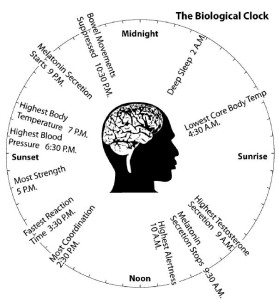
Acupuncture will treat the organs with an imbalance such as waking at 4am or fatigue at 11am for example – Talk with your acupuncturist about the symptoms you are experiencing so a treatment can be tailored and the imbalanced corrected – all you have to do is maintain it! It might be small nutritional changes, stress management ideas tailored to you.
Understanding that every organ has a repair/maintenance schedule to keep on a daily basis offers you the opportunity to learn how to treat yourself for improved health and well-being. It also allows you to identify exactly which organ system or emotion needs strengthening/resolving. Always use your symptoms and body cues as a guide, and if you make a connection above, such as that you get sleepy between 5-7pm, don’t hesitate to research what you can do to strengthen that organ (which would be the Kidneys). A great solution to deficient kidneys is having a sweet potato for breakfast!
Make sure to look at the emotional aspect too. If you’re sleepy during kidney time, do you have any fears holding you back from reaching your true potential? Are you afraid of rejection? Failure? Addressing this emotion will strengthening the organ and improve your physical health now and for the future 🙂
Take care of you, see you in the clinic,
TK xx
Tanya Keam Wellness is an experienced health clinic on the Sunshine Coast. Helping you to feel better in all aspects of your health and wellbeing.

Chinese medicine gives us numerous mental, physical and nutritional tools to help us maintain balance all year round. There is much focus around the seasons of the year, where each of our organs are associated with each season. Winter is of the Kidneys and Bladder which rule water metabolism and maintaining homeostasis, a dynamic continual rebalancing. Winter is also the most ‘yin’ time of the year – yin is dark, cold, slow, with inward energy, compared to Summer which is light, hot, quick, with expansive qualities.
Some people feel quite energised by Winter, going snowboarding and being out in the chilly weather bush walking. While others retract, stay inside and can feel low in mood from the lack of light and physical activity.
Imbalances that can occur during the winter months include:
Foods that are beneficial during the Winter months include:
Root vegetables, winter greens, mushroom, apple, pear, potato, squash, citrus fruits, kidney bean, black sesame seed, dark leafy greens, chicken, lamb, tempeh, whole grains, miso, unrefined sea salt, bone broths (organic).
Chinese medicine dietetic philosophy suggests that we embrace native foods, locally grown, and organic and/or chemical free where possible. Take time to sit down and enjoy your meal.
Tips to stay well this Winter:
Exercise wise, we all do less during the cooler months as it is a time to rest and revitalise our kidneys, which is why some animals hibernate. Nature is at rest, and in this rest replenishes itself.
By eating well, regular exercise, paying attention to our bodies and harmonising ourselves to the seasons, we can stay healthier and prevent illness. Once we feel good and are maintaining a level of wellness that we all strive for, it allows us to enjoy the cooler months, whether its indoors or hitting the waves (with a wetsuit!). Thus, Winter is the perfect time to look inward, reflect on ourselves, practice writing or other practices such as yoga, pilates or tai chi.
Take care of you, see you in the clinic,
TK xx
Tanya Keam Wellness is an experienced health clinic on the Sunshine Coast. Helping you to feel better in all aspects of your health and wellbeing.